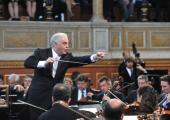BBC National Orchestra of Wales, Hoddinott Hall, Cardiff
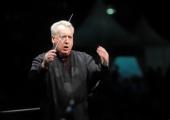

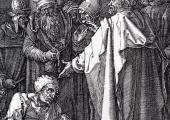
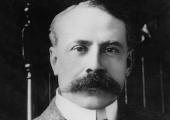
UPDATE 2015: Four years ago, in January 2011, I wrote this article about the music critic and biographer Michael Kennedy's search for the missing portion of Elgar's life. It identified a Mrs Dora Nelson as the composer's mistress and mother of a lovechild, who might have influenced some legendarily enigmatic aspects of Elgar's compositional output. A new development opened when an Arts Desk reader contacted me, who had taken up Kennedy's and my requests for others to pick up this unsolved mystery.
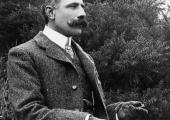
Where is the real Elgar to be found – in his boisterous self-portrait at the end of the Enigma Variations, the warm, feminine sentiment of the Violin Concerto and the First Symphony’s Adagio, or the nightmares of the Second Symphony? No doubt in each of them, and more. John Bridcut’s painfully sensitive documentary hones in on the private, introspective Elgar, the dark knight of "ghosts and shadows", always with the music to the fore. And by getting the good and great, young and old of the musical world not just to talk but to react to the works as they hear them, he may have broken new ground.
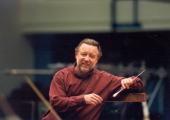
Elgar and Delius are two geniuses who only ever composed themselves - the first drawing heavily on psychology and physiognomy, the second drenching his country visions in painful nostalgia. So it made good sense to have man and nature side by side in Sir Andrew Davis's latest enterprising concert. Oh, and there was a commission from the Royal Philharmonic Society's Elgar Bursary too, though this was only "new" music by the old guard. I suspect that the BBC Symphony players could have done without Edwin Roxburgh's Concerto for Orchestra in a heavy programme, resplendently though they tackled it, and so could I.

Part 2 @bbcproms. The madness begins. Ms Derham has not switched gowns in the interval. No sign of Titchmarsh, for which we must give thanks.
The "traditional" necklace of laurels for Sir Henry Wood's bust. Wonder if he'd welcome his head being polished by a pink rag.
How do they pick these pieces? Apols but the Marche joyeuse did not fill this tweeter with joy. On the other hand, here's Renée plus a mike.
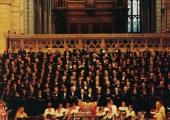
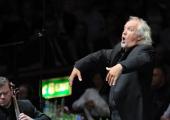
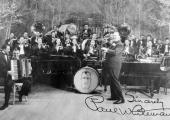
This month the selection varies from sackbutts to serialism, by way of condensed Wagner, Elgar conducted by the much-missed Vernon Handley and music from both Shostakovich and a disciple of his. Among contemporary music there is Osvaldo Golijov’s lively setting of the Passion story and the young German composer Thomas Larcher and the great Henri Dutilleux. There are also more delights from Swiss master Frank Martin. Violin pyrotechnics are supplied by Ysaÿe. But we begin with vintage Gershwin, and that famous looping clarinet.
